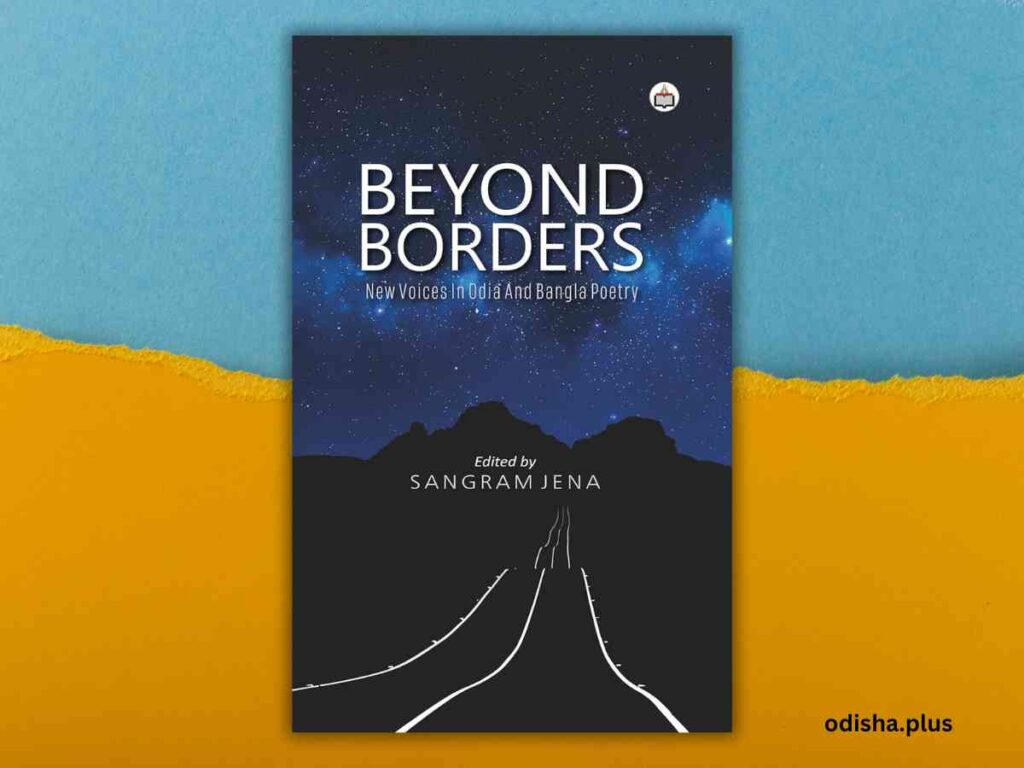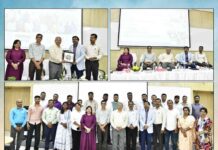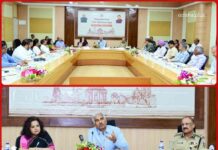Beyond Borders is an anthology featuring the works of Odia & Bengali poets who were born in or after 1947, the pivotal year of India’s independence
Bhaskar Parichha

Beyond Borders
Ed. Sangram Jena
Authors Press
New Delhi
Beyond Borders: New Voices in Odia and Bangla Poetry is a collection of about three hundred poems from across the subcontinent.
Edited by Sangram Jena, this is a remarkable anthology featuring the works of Odia and Bengali poets who were born in or after 1947, the pivotal year of India’s independence. This collection, part of the initiatives by the Centre for Asian Studies in Bhubaneswar, showcases the voices of 35 contemporary poets from both linguistic backgrounds, whether they reside within their home states or abroad.
Notable contributors include Ajit Patra from Jharkhand, who writes in Odia, alongside Bangladeshi poets such as Mohammad Nurul Huda, Farid Kabir, Rahima Akhtar Kalpana, Maruful Islam, Quazi Johirul Islam and Obayed Akash, all expressing their artistry in Bangla. A concerted effort has been made to represent a diverse range of voices, including both established and emerging poets from each language.
Jena, an accomplished poet and translator fluent in two languages, has published five poetry collections in Odia and four in English. His writings have been translated into English and several Indian languages, featuring in a variety of literary journals throughout India, the UK, the USA, and Australia. He has received prestigious accolades, including the Sahitya Akademi Award for Translation and the Bhanuji Rao Award for his poetry. Furthermore, he holds the position of editor for two literary journals: Marg ASIA in English and Nishant in Odia.
Writes Jena in the introduction: ‘During the freedom movement poetry in colonial India was loaded with the spirit of rebellion, patriotism, Gandhian ideals, national and provincial identities and hope for an egalitarian society. Apart from political from political movements, the Russian Revolution, the destruction and futility unleased by World War-II, many social reforms and the influence of western ideas shaped the worldview of poets. After independence new situations emerged marked by growing disillusionment with political, social and economic order as the goals of independence appeared unrealized. In this situation, the poets discovered newer ways of looking at things and redefined the existing relationships. The new sensibility demanded new forms, subjects, expressions, technique, vocabulary, idiom and images to capture emerging realities in personal and social life, inpoetry, what Octavio Paz calls ‘the other voice’.
Poets, when approaching their craft from various perspectives, articulate themes such as love, loss, separation, dreams, and despair. They explore the dynamics between men and women, the institution of marriage, and the pursuit of gender equality within the frameworks of race and religion. Additionally, they reflect on the dehumanizing effects of technology, which have contributed to the erosion of community life, displacement, and environmental degradation. This anthology does exactly that.
Poetry is often seen as a powerful and enduring force that challenges dominant narratives and societal norms, acting as a counterbalance to hegemony. It possesses a unique ability to articulate the complexities and contradictions that define our existence, allowing for a nuanced exploration of the human condition. In this way, poetry becomes a vessel for voices that might otherwise go unheard, offering a platform for marginalized perspectives and fostering a deeper understanding of our shared experiences.
The emerging voice within contemporary poetry is particularly significant, as it seeks to cultivate a constructive evolution of ideas that resonate with the multifaceted nature of life. This voice is not merely a reflection of joy or beauty; it also bravely confronts the darker aspects of existence—loss, despair, and disenchantment. These themes are not just incidental; they are integral to our lived experiences, shaping our identities and influencing our interactions with the world around us.
In many respects, the poets in this 400-page compendium have questioned established norms and traditional societal values through post-modern clans. Numerous poems featured in the collection are characterized by tenderness, romance, and a spirit of rebellion, interspersed with feelings of joy, wonder, skepticism, uncertainty, and disillusionment as they navigate the complexities of the world.
For younger poets, their protests often stem from the weight of reality, reflecting on prevailing social, economic, and political conditions, as well as personal loss and deprivation, which can even manifest as a rebellion against oneself, one’s fate, and the divine. They vocalize their opposition to injustice and various forms of exploitation that infringe upon human rights, dignity, and freedom.
In their defiance, poets pursue continuous self-renewal as a reaction to the challenges of their era. While the themes may be deeply personal, they also address broader societal issues. The poems within this anthology illustrate how these emerging voices articulate their experiences in works composed in two languages, each with its own rich poetic heritage.
With a foreword by Prof. Pabitra Sarkar, former Vice-Chancellor, Rabindra Bharati University, Kolkata this is an admirable initiative to unite poets from two closely related languages!
(The author is a senior journalist and columnist. Views expressed are personal.)
#OdiaPoetry #BanglaPoetry #ContemporaryPoets #IndianLiterature #PoetryAnthology #SangramJena #VoicesOfDiversity #CulturalExchange #LiteraryInitiative




















